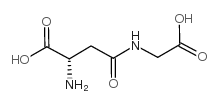Influence of temocillin on colonisation resistance and consequences for therapy.
H G De Vries-Hospers, W Hofstra, G W Welling, D Van der Waaij
Index: Drugs 29 Suppl 5 , 227-33, (1985)
Full Text: HTML
Abstract
The influence of temocillin on the colonisation resistance of the digestive tract was studied in mice, with doses ranging from 0.062 to 1 mg/day administered orally and 0.25 to 4 mg/day administered subcutaneously. The effect on the colonisation resistance was measured by the concentration of resistant bacteria (either endogenous enterococci or an exogenous strain of Enterobacter cloacae) as well as by the relative caecal weight and the appearance of beta-aspartylglycine in the caecal contents. None of these parameters indicated a decreased colonisation resistance by any of the dosages investigated, meaning that, in the mouse the drug can be used safely without an increased risk of overgrowth by resistant bacteria causing superinfections. Both systemic and oral administration of 0.25mg of temocillin/mouse/day (10 mg/kg/day) appeared to completely suppress the sensitive Gram-negative bacilli from the digestive tract within 2 days. This selective decontamination of the digestive tract in mice was the reason for a subsequent study in man. It emerged that selective decontamination with parenterally administered temocillin was possible in 7 out of 10 volunteers. The remaining 3 however, did not respond to temocillin although their faecal Gram-negative bacilli were susceptible to the drug. In none of the volunteers did the colonisation resistance appear to be affected. The consequences of the use of temocillin for either prevention or therapy of infections are discussed.
Related Compounds
| Structure | Name/CAS No. | Molecular Formula | Articles |
|---|---|---|---|
 |
H-Asp(Gly-OH)-OH
CAS:3790-52-1 |
C6H10N2O5 |
|
'Normalization' of germfree mice after direct and indirect c...
1986-10-01 [Lab. Anim. 20(4) , 286-90, (1986)] |
|
Influence of zinc bacitracin and Bacillus licheniformis on m...
2003-10-01 [Vet. Res. Commun. 27(7) , 513-26, (2003)] |
|
[Rapid diagnosis of dysbacteriosis by detecting beta-asparty...
1985-08-01 [Zh. Mikrobiol. Epidemiol. Immunobiol. (8) , 15-8, (1985)] |
|
Effects of selective oral antimicrobial prophylaxis and syst...
1989-08-01 [APMIS 97(8) , 705-14, (1989)] |
|
[Changes in the microflora of the large intestine in rats ad...
1987-03-01 [Antibiot. Med. Biotekhnol. 32(3) , 206-10, (1987)] |